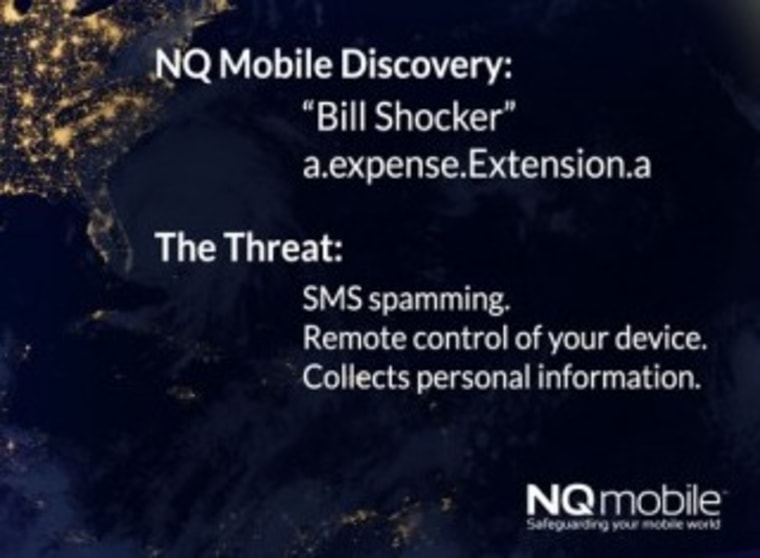A particularly virulent piece of malware has infected some 620,000 Android users in China. It's called "Bill Shocker," and it allows more or less complete control over the user's phone. Don't worry, though: You're not likely to get it in the U.S.
Security researchers at NQ Mobile observed abnormal behavior in a number of popular apps, including Tencent QQ Messenger and Sohu News. When infected versions of these apps are downloaded via third-party (non-Google) app stores or websites, the malware downloads itself in the background.
At this point, the phone is basically completely compromised as far as cellular activity. Bill Shocker can access contacts, dialer, Internet and text message functions, which it uses to send spam texts and other things. This can quickly overrun the texting and data limit on a user's mobile plan, which is presumably the source of the name.
NQ Mobile, which has offices in Dallas and Beijing, China, has made an anti-malware app available for free that should prevent Bill Shocker from activating, and already has a more general-purpose security app on the market.
Chinese users are at greater risk for malware infections because the official Google Play Store is difficult to access there. Because of firewalls, unofficial versions of the Android software, and other aspects of the Chinese Android market, most people download apps from third-partyapp stores, or simply "sideload" them from websites (as you would do to install the app linked above).
Without the watchful eye of Google, malware apps can proliferate, although even 620,000 infections is still only a fraction of a percent of the total Android users in China.
Here in the U.S., Android users are protected by more stringent security practices in the popular app stores, although it is still possible to contract a malware infection by downloading apps from untrusted sources.
Devin Coldewey is a contributing writer for NBC News Digital. His personal website is coldewey.cc.
